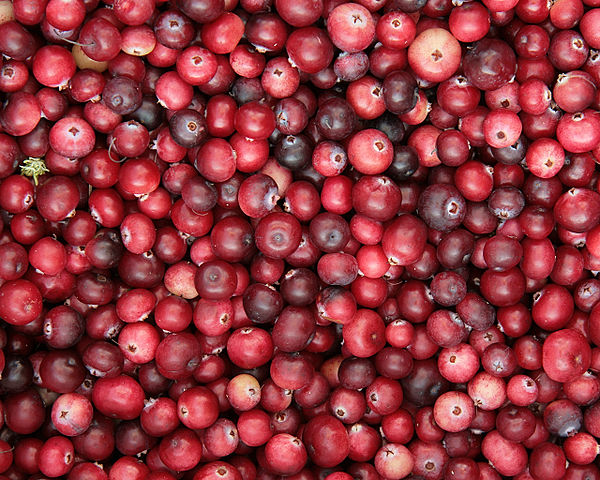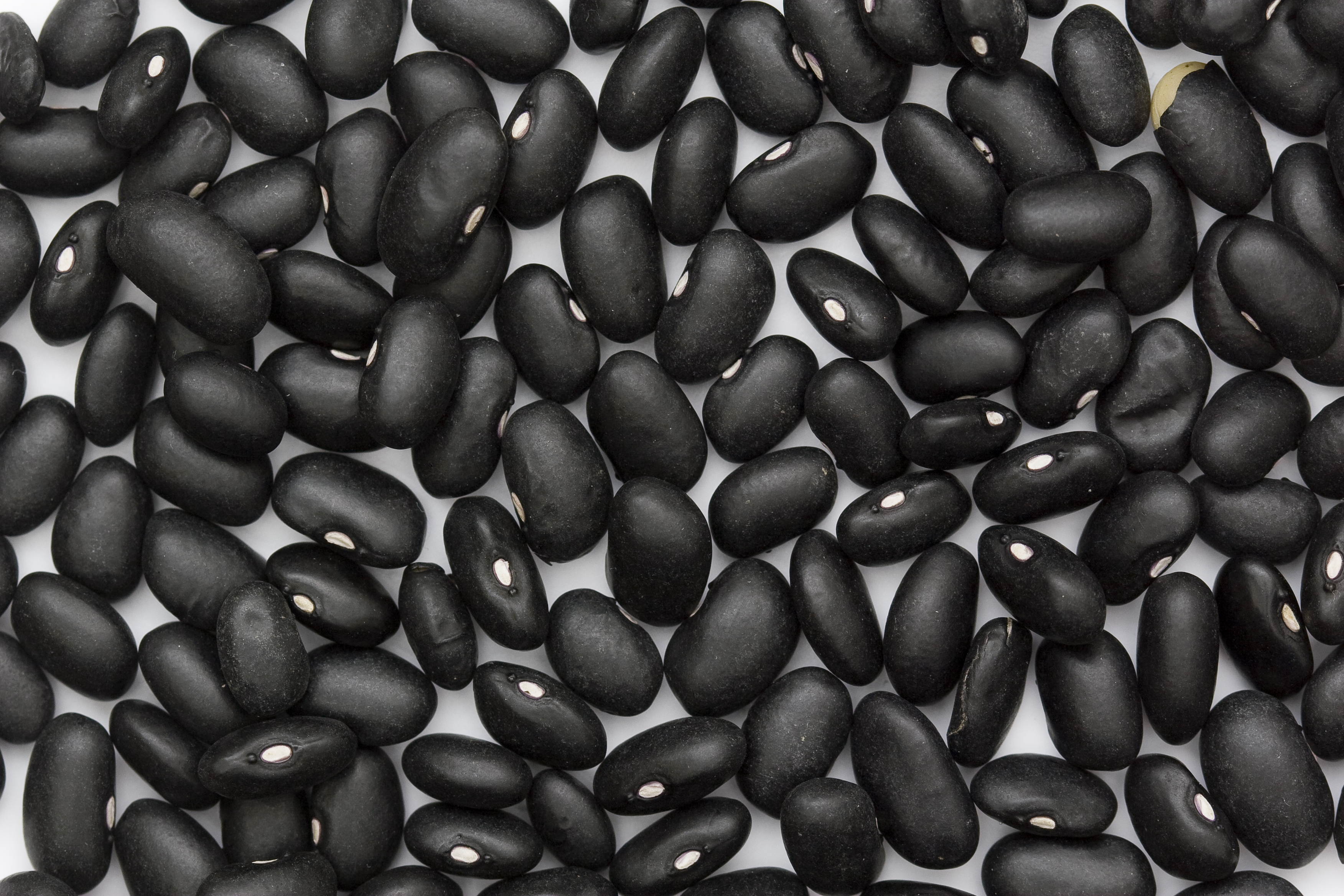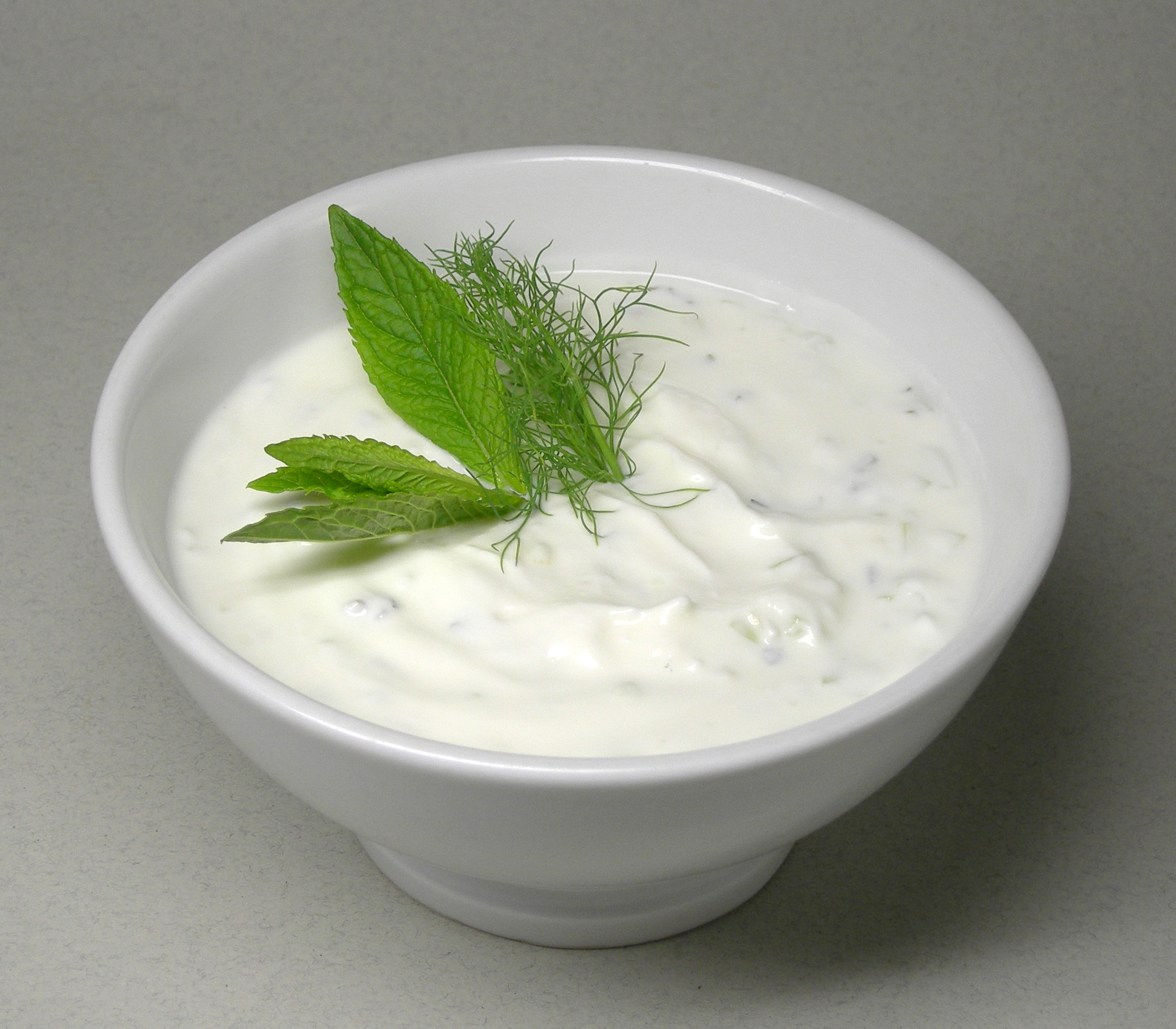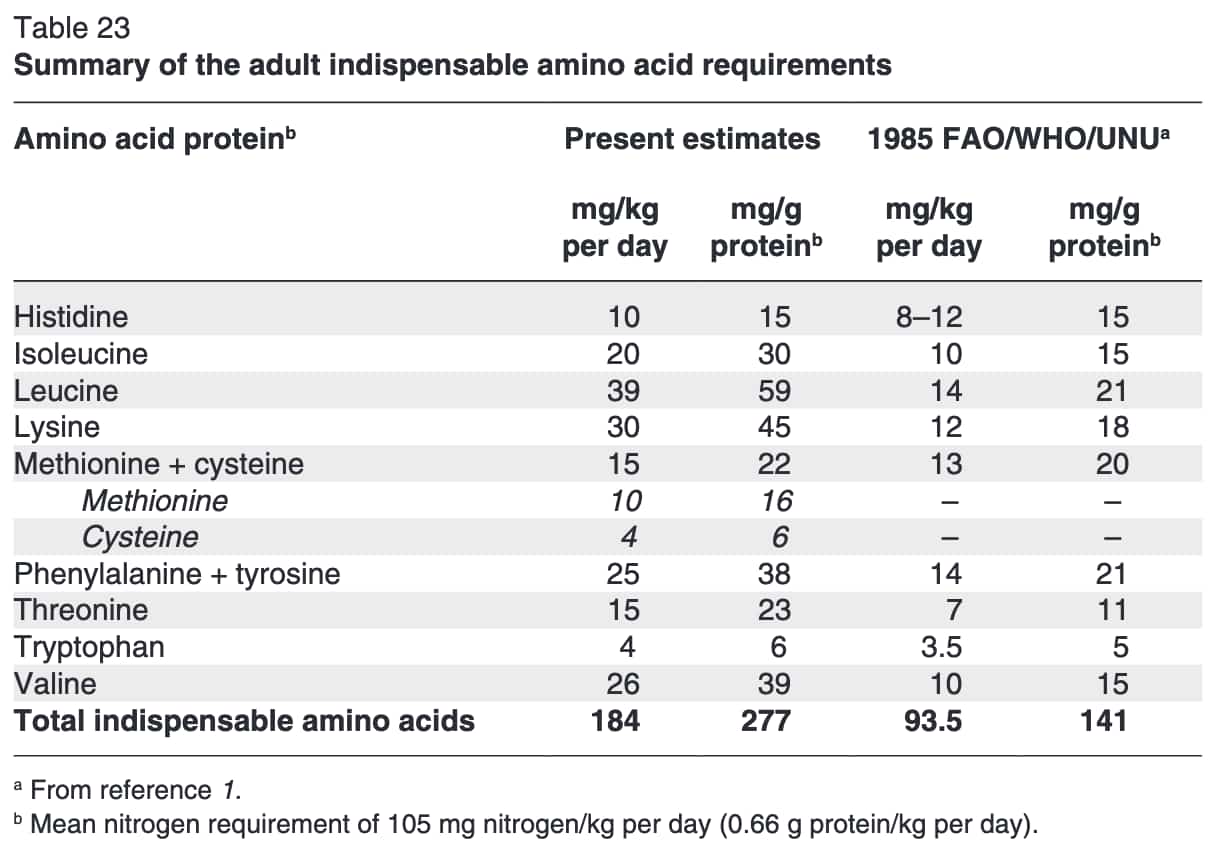16 Complete Protein Pairings with Sunflower Seeds
Summary:
- Sunflower seed is low in protein - about 0.5 grams per tsp.
- In addition, sunflower seed provides only 8 of the 9 essential amino acids sufficiently - it is a little low on lysine.[1]
- Sunflower seed pairs well with cauliflower, carrots, watermelon, crimini mushroom or cranberry to create a complete protein profile. [2] More sunflower seed pairings and detailed analysis below.
A complete protein is a protein source that "contains adequate proportions of the nine essential amino acids" that our body can not produce on its own.
We analyzed the amino acid composition of sunflower seeds, and found both vegan and vegetarian pairings with sunflower seeds that creates a complete protein profile. Read on to discover new combinations of foods to enjoy!
Details on how we calculate complete protein profiles.
Amount of Protein in Sunflower Seeds
Relatively low in protein, a single teaspoon of sunflower seeds contains 0.5 grams of protein, or about 1% of recommended daily values. [1]
To get the adequate amount of protein with sunflower seeds alone, you will need 104 teaspoons of sunflower seeds (291 grams) for an average female, or 125 teaspoons of sunflower seeds for males. [4] That's over 1800 calories. Pairing sunflower seed with a richer protein source is a good idea.
Full nutritional profile for sunflower seeds
USDA Source: Seeds, sunflower seed kernels, toasted, without salt
Macronutrients in 1 tsp (2.792g) of sunflower seeds:
| % of RDV | Amount | ||
| Calories |
|
0.9% | 17 kCal |
| Carbohydrates |
|
0% | - |
| Total fat |
|
2.5% | 1.6 grams |
| Protein |
|
1% | 0.5 grams |
Essential Amino Acids in Sunflower Seeds
Proportionally, sunflower seed does contain abundant amounts of 8 out of the nine essential amino acids. However, sunflower seed is a little short on lysine.[1]
To have adequate amounts of all nine essential amino acids with sunflower seed alone, you will have to eat 87 teaspoons of sunflower seeds (242 grams) for an average person. [2]
That's about 17% more sunflower seed to compensate for the lack of lysine, compared to the protein requirement alone.
The amount of each essential amino acid in 1 tsp (2.792g) of sunflower seeds:
| Amino Acid | % of RDV [2] | Amount [1] |
Complete / Adequate |
|
| Protein |
|
1% | 0.481g | |
| Histidine |
|
2.1% | 0.013g | |
| Isoleucine |
|
2.8% | 0.024g | |
| Leucine |
|
1.9% | 0.035g | |
| Lysine |
|
1.2% | 0.02g | |
| Methionine |
|
1.2% | 0.01g | |
| Phenylalanine |
|
1.7% | 0.025g | |
| Threonine |
|
2.2% | 0.02g | |
| Tryptophan |
|
2.8% | 0.007g | |
| Valine |
|
2.6% | 0.028g |
More Complete Protein with Sunflower Seeds
- Cauliflower
- Carrots
- Watermelon
- Crimini Mushroom
- Cranberry
- Nutritional Yeast
- Mango
- Pumpkin Seeds
- Dijon Mustard
- Yellow Mustard
- Black Beans
- Kidney Beans
Vegan 1. Cauliflower and Sunflower Seeds

Low in protein, cauliflower is high in lysine, which is complementary to sunflower seed.
A ratio of 10 teaspoons of sunflower seeds (28g) and 14.4 grams of cauliflower creates a complete protein profile. The entire range to create a complete protein are ratios of 1:0.5 to 1:0 for sunflower seed to cauliflower by weight.
Full nutritional profile for cauliflower
USDA Source: Cauliflower, raw
| Amino Acid | % of RDV [2] | Amount [5] |
Complete / Adequate |
|
| Protein |
|
10.2% | 5.1g | |
| Histidine |
|
22.4% | 0.14g | |
| Isoleucine |
|
29.1% | 0.25g | |
| Leucine |
|
19.3% | 0.37g | |
| Lysine |
|
13.4% | 0.23g | |
| Methionine |
|
12.5% | 0.11g | |
| Phenylalanine |
|
17.2% | 0.26g | |
| Threonine |
|
23% | 0.21g | |
| Tryptophan |
|
29.3% | 0.08g | |
| Valine |
|
27.4% | 0.3g |
Vegan 2. Carrots and Sunflower Seeds


Carrot is low in protein, and is high in lysine, complementing the profile of sunflower seed.
For example, 10 teaspoons of sunflower seeds (28g) and 0.4 carrot (32g) make a complete amino acids profile. In fact, any ratio of more than 1.1:1 of carrot to sunflower seed will be complete.
Full nutritional profile for carrots
USDA Source: Carrots, raw
| Amino Acid | % of RDV [2] | Amount [6] |
Complete / Adequate |
|
| Protein |
|
10.2% | 5.1g | |
| Histidine |
|
23.2% | 0.15g | |
| Isoleucine |
|
30.8% | 0.26g | |
| Leucine |
|
20.2% | 0.38g | |
| Lysine |
|
13.4% | 0.23g | |
| Methionine |
|
12.9% | 0.11g | |
| Phenylalanine |
|
17.8% | 0.27g | |
| Threonine |
|
28.5% | 0.26g | |
| Tryptophan |
|
29.7% | 0.08g | |
| Valine |
|
27.7% | 0.3g |
Vegan 3. Watermelon and Sunflower Seeds


Low in protein, watermelon is high in lysine, which is complementary to sunflower seed.
A ratio of 10 teaspoons of sunflower seeds (28g) and 0.4 cup of watermelon (54g) creates a complete protein profile. The entire range to create a complete protein are ratios of 1:1.9 to 1:0.05 for sunflower seed to watermelon by weight.
Full nutritional profile for watermelon
USDA Source: Watermelon, raw
| Amino Acid | % of RDV [2] | Amount [7] |
Complete / Adequate |
|
| Protein |
|
10.3% | 5.1g | |
| Histidine |
|
21.7% | 0.14g | |
| Isoleucine |
|
29.1% | 0.25g | |
| Leucine |
|
19% | 0.36g | |
| Lysine |
|
13.5% | 0.23g | |
| Methionine |
|
12.5% | 0.11g | |
| Phenylalanine |
|
17.1% | 0.25g | |
| Threonine |
|
23.4% | 0.21g | |
| Tryptophan |
|
29.7% | 0.08g | |
| Valine |
|
26.5% | 0.29g |
Vegan 4. Crimini Mushroom and Sunflower Seeds


Crimini mushroom is a reasonable source of supplementary protein, and is high in lysine, complementing the profile of sunflower seed.
For example, 10 teaspoons of sunflower seeds (28g) and 2.5 tablespoons of crimini mushroom (13g) make a complete amino acids profile. The entire range to create a complete protein are ratios of 1:0.48 to 1:48 for sunflower seed to crimini mushroom by weight.
Full nutritional profile for crimini mushroom
USDA Source: Mushrooms, brown, italian, or crimini, raw
| Amino Acid | % of RDV [2] | Amount [8] |
Complete / Adequate |
|
| Protein |
|
10.3% | 5.1g | |
| Histidine |
|
22.6% | 0.14g | |
| Isoleucine |
|
29.5% | 0.25g | |
| Leucine |
|
19.6% | 0.37g | |
| Lysine |
|
13.5% | 0.23g | |
| Methionine |
|
12.9% | 0.11g | |
| Phenylalanine |
|
17.4% | 0.26g | |
| Threonine |
|
23.5% | 0.21g | |
| Tryptophan |
|
31.1% | 0.08g | |
| Valine |
|
27.1% | 0.29g |
Vegan 5. Cranberry and Sunflower Seeds


Low in protein, cranberry is high in lysine, which is complementary to sunflower seed.
A ratio of 10 teaspoons of sunflower seeds (28g) and 0.9 cup of cranberry (102g) creates a complete protein profile. The entire range to create a complete protein are ratios of 1:4 to 1:0.21 for sunflower seed to cranberry by weight.
Full nutritional profile for cranberry
USDA Source: Cranberries, raw
| Amino Acid | % of RDV [2] | Amount [9] |
Complete / Adequate |
|
| Protein |
|
10.6% | 5.3g | |
| Histidine |
|
24.1% | 0.15g | |
| Isoleucine |
|
31.9% | 0.27g | |
| Leucine |
|
21.4% | 0.4g | |
| Lysine |
|
13.9% | 0.24g | |
| Methionine |
|
12.5% | 0.11g | |
| Phenylalanine |
|
19% | 0.28g | |
| Threonine |
|
25% | 0.22g | |
| Tryptophan |
|
29.4% | 0.08g | |
| Valine |
|
30% | 0.32g |
Vegan 6. Nutritional Yeast and Sunflower Seeds


Nutritional yeast is a great source of protein, and is high in lysine, complementing the profile of sunflower seed.
For example, 10 teaspoons of sunflower seeds (28g) and 0.3 teaspoon of nutritional yeast (1g) make a complete amino acids profile. The entire range to create a complete protein are ratios of 1:0.05 to 1:0 for sunflower seed to nutritional yeast by weight.
Full nutritional profile for nutritional yeast
USDA Source: Leavening agents, yeast, baker's, active dry
| Amino Acid | % of RDV [2] | Amount [10] |
Complete / Adequate |
|
| Protein |
|
10.6% | 5.3g | |
| Histidine |
|
23% | 0.14g | |
| Isoleucine |
|
30.8% | 0.26g | |
| Leucine |
|
20.5% | 0.39g | |
| Lysine |
|
14% | 0.24g | |
| Methionine |
|
13% | 0.11g | |
| Phenylalanine |
|
18.1% | 0.27g | |
| Threonine |
|
24.6% | 0.22g | |
| Tryptophan |
|
30.9% | 0.08g | |
| Valine |
|
28.4% | 0.31g |
Vegan 7. Mango and Sunflower Seeds


Low in protein, mango is high in lysine, which is complementary to sunflower seed.
A ratio of 10 teaspoons of sunflower seeds (28g) and 0.2 mango (64g) creates a complete protein profile. The entire range to create a complete protein are ratios of 1:2.3 to 1:0.04 for sunflower seed to mango by weight.
Full nutritional profile for mango
USDA Source: Mangos, raw
| Amino Acid | % of RDV [2] | Amount [11] |
Complete / Adequate |
|
| Protein |
|
10.7% | 5.3g | |
| Histidine |
|
23.1% | 0.15g | |
| Isoleucine |
|
30.1% | 0.26g | |
| Leucine |
|
20.2% | 0.38g | |
| Lysine |
|
14% | 0.24g | |
| Methionine |
|
12.7% | 0.11g | |
| Phenylalanine |
|
17.7% | 0.26g | |
| Threonine |
|
24% | 0.22g | |
| Tryptophan |
|
31.5% | 0.08g | |
| Valine |
|
28.2% | 0.3g |
Vegan 8. Pumpkin Seeds and Sunflower Seeds


Pumpkin seed is a reasonable source of supplementary protein, and is high in lysine, complementing the profile of sunflower seed.
For example, 10 teaspoons of sunflower seeds (28g) and 0.9 tablespoon of pumpkin seeds (3g) make a complete amino acids profile. The entire range to create a complete protein are ratios of 1:0.12 to 1:12 for sunflower seed to pumpkin seed by weight.
Full nutritional profile for pumpkin seeds
USDA Source: Seeds, pumpkin and squash seeds, whole, roasted, without salt
| Amino Acid | % of RDV [2] | Amount [12] |
Complete / Adequate |
|
| Protein |
|
10.9% | 5.4g | |
| Histidine |
|
23.9% | 0.15g | |
| Isoleucine |
|
31.7% | 0.27g | |
| Leucine |
|
21.4% | 0.4g | |
| Lysine |
|
14.3% | 0.24g | |
| Methionine |
|
13.8% | 0.12g | |
| Phenylalanine |
|
18.7% | 0.28g | |
| Threonine |
|
24.4% | 0.22g | |
| Tryptophan |
|
32.5% | 0.08g | |
| Valine |
|
30.4% | 0.33g |
Vegan 9. Dijon Mustard and Sunflower Seeds


A great source of protein, dijon mustard is high in lysine, which is complementary to sunflower seed.
A ratio of 10 teaspoons of sunflower seeds (28g) and 0.5 tablespoon of dijon mustard (3g) creates a complete protein profile. The entire range to create a complete protein are ratios of 1:0.1 to 1:10 for sunflower seed to dijon mustard by weight.
Full nutritional profile for dijon mustard
USDA Source: Spices, mustard seed, ground
| Amino Acid | % of RDV [2] | Amount [13] |
Complete / Adequate |
|
| Protein |
|
11.1% | 5.5g | |
| Histidine |
|
25% | 0.16g | |
| Isoleucine |
|
31.8% | 0.27g | |
| Leucine |
|
21.6% | 0.41g | |
| Lysine |
|
14.6% | 0.25g | |
| Methionine |
|
13.7% | 0.12g | |
| Phenylalanine |
|
18.7% | 0.28g | |
| Threonine |
|
24.4% | 0.22g | |
| Tryptophan |
|
31% | 0.08g | |
| Valine |
|
29.6% | 0.32g |
Vegan 10. Yellow Mustard and Sunflower Seeds


Yellow mustard is a reasonable source of supplementary protein, and is high in lysine, complementing the profile of sunflower seed.
For example, 10 teaspoons of sunflower seeds (28g) and 1.3 tablespoons of yellow mustard (20g) make a complete amino acids profile. The entire range to create a complete protein are ratios of 1:0.7 to 1:0.15 for sunflower seed to yellow mustard by weight.
Full nutritional profile for yellow mustard
USDA Source: Mustard, prepared, yellow
| Amino Acid | % of RDV [2] | Amount [14] |
Complete / Adequate |
|
| Protein |
|
11.1% | 5.5g | |
| Histidine |
|
24.8% | 0.16g | |
| Isoleucine |
|
31.3% | 0.27g | |
| Leucine |
|
21.5% | 0.41g | |
| Lysine |
|
14.6% | 0.25g | |
| Methionine |
|
13.9% | 0.12g | |
| Phenylalanine |
|
18.7% | 0.28g | |
| Threonine |
|
25.4% | 0.23g | |
| Tryptophan |
|
28.9% | 0.08g | |
| Valine |
|
29.1% | 0.31g |
Vegan 11. Black Beans and Sunflower Seeds


A reasonable source of supplementary protein, black bean is high in lysine, which is complementary to sunflower seed.
A ratio of 10 teaspoons of sunflower seeds (28g) and 0.8 tablespoon of black beans (12g) creates a complete protein profile. The entire range to create a complete protein are ratios of 1:0.45 to 1:0 for sunflower seed to black bean by weight.
Full nutritional profile for black beans
USDA Source: Beans, black turtle, mature seeds, canned
| Amino Acid | % of RDV [2] | Amount [15] |
Complete / Adequate |
|
| Protein |
|
11.1% | 5.6g | |
| Histidine |
|
24.4% | 0.15g | |
| Isoleucine |
|
32.1% | 0.28g | |
| Leucine |
|
21.9% | 0.41g | |
| Lysine |
|
14.6% | 0.25g | |
| Methionine |
|
13.3% | 0.11g | |
| Phenylalanine |
|
19.5% | 0.29g | |
| Threonine |
|
24.8% | 0.22g | |
| Tryptophan |
|
31.7% | 0.08g | |
| Valine |
|
29.7% | 0.32g |
Vegan 12. Kidney Beans and Sunflower Seeds


Kidney bean is a reasonable source of supplementary protein, and is high in lysine, complementing the profile of sunflower seed.
For example, 10 teaspoons of sunflower seeds (28g) and 0.9 tablespoon of kidney beans (9g) make a complete amino acids profile. The entire range to create a complete protein are ratios of 1:0.33 to 1:0 for sunflower seed to kidney bean by weight.
Full nutritional profile for kidney beans
USDA Source: Beans, kidney, red, mature seeds, canned, drained solids, rinsed in tap water
| Amino Acid | % of RDV [2] | Amount [16] |
Complete / Adequate |
|
| Protein |
|
11.1% | 5.6g | |
| Histidine |
|
24.4% | 0.15g | |
| Isoleucine |
|
32.1% | 0.28g | |
| Leucine |
|
21.9% | 0.41g | |
| Lysine |
|
14.6% | 0.25g | |
| Methionine |
|
13.3% | 0.11g | |
| Phenylalanine |
|
19.5% | 0.29g | |
| Threonine |
|
24.8% | 0.22g | |
| Tryptophan |
|
31.7% | 0.08g | |
| Valine |
|
29.7% | 0.32g |
Vegetarian 13. Sour Cream and Sunflower Seeds


A reasonable source of supplementary protein, sour cream is high in lysine, which is complementary to sunflower seed.
A ratio of 10 teaspoons of sunflower seeds (28g) and 0.9 tablespoon of sour cream (11g) creates a complete protein profile. The entire range to create a complete protein are ratios of 1:0.41 to 1:41 for sunflower seed to sour cream by weight.
Full nutritional profile for sour cream
USDA Source: Cream, sour, cultured
| Amino Acid | % of RDV [2] | Amount [17] |
Complete / Adequate |
|
| Protein |
|
10.2% | 5.1g | |
| Histidine |
|
22.8% | 0.14g | |
| Isoleucine |
|
30.1% | 0.26g | |
| Leucine |
|
20.5% | 0.39g | |
| Lysine |
|
13.4% | 0.23g | |
| Methionine |
|
13.2% | 0.11g | |
| Phenylalanine |
|
17.7% | 0.26g | |
| Threonine |
|
23.6% | 0.21g | |
| Tryptophan |
|
30.1% | 0.08g | |
| Valine |
|
27.7% | 0.3g |
Vegetarian 14. Caramel and Sunflower Seeds


Caramel is low in protein, and is high in lysine, complementing the profile of sunflower seed.
For example, 10 teaspoons of sunflower seeds (28g) and 1.5 tablespoons of caramel (30g) make a complete amino acids profile. The entire range to create a complete protein are ratios of 1:1.1 to 1:0.02 for sunflower seed to caramel by weight.
Full nutritional profile for caramel
USDA Source: Toppings, butterscotch or caramel
| Amino Acid | % of RDV [2] | Amount [18] |
Complete / Adequate |
|
| Protein |
|
10.3% | 5.2g | |
| Histidine |
|
23% | 0.15g | |
| Isoleucine |
|
31.1% | 0.27g | |
| Leucine |
|
20.8% | 0.39g | |
| Lysine |
|
13.6% | 0.23g | |
| Methionine |
|
13.4% | 0.12g | |
| Phenylalanine |
|
18% | 0.27g | |
| Threonine |
|
24% | 0.22g | |
| Tryptophan |
|
28.2% | 0.07g | |
| Valine |
|
28.4% | 0.31g |
Vegetarian 15. Yogurt and Sunflower Seeds


A reasonable source of supplementary protein, yogurt is high in lysine, which is complementary to sunflower seed.
A ratio of 10 teaspoons of sunflower seeds (28g) and 0.8 tablespoon of yogurt (12g) creates a complete protein profile. The entire range to create a complete protein are ratios of 1:0.43 to 1:0.11 for sunflower seed to yogurt by weight.
Full nutritional profile for yogurt
USDA Source: Yogurt, plain, whole milk
| Amino Acid | % of RDV [2] | Amount [19] |
Complete / Adequate |
|
| Protein |
|
10.5% | 5.2g | |
| Histidine |
|
22.8% | 0.14g | |
| Isoleucine |
|
30.6% | 0.26g | |
| Leucine |
|
20.8% | 0.39g | |
| Lysine |
|
13.8% | 0.24g | |
| Methionine |
|
13.6% | 0.12g | |
| Phenylalanine |
|
18.1% | 0.27g | |
| Threonine |
|
23.7% | 0.21g | |
| Tryptophan |
|
29.2% | 0.08g | |
| Valine |
|
28.9% | 0.31g |
Vegetarian 16. Milk and Sunflower Seeds


Milk is a reasonable source of supplementary protein, and is high in lysine, complementing the profile of sunflower seed.
For example, 10 teaspoons of sunflower seeds (28g) and 1 tablespoon of milk (15g) make a complete amino acids profile. In fact, any ratio of more than 0.5:1 of milk to sunflower seed will be complete.
Full nutritional profile for milk
USDA Source: Milk, reduced fat, fluid, 2% milkfat, with added vitamin A and vitamin D
| Amino Acid | % of RDV [2] | Amount [20] |
Complete / Adequate |
|
| Protein |
|
10.6% | 5.3g | |
| Histidine |
|
23.5% | 0.15g | |
| Isoleucine |
|
30.9% | 0.27g | |
| Leucine |
|
21% | 0.4g | |
| Lysine |
|
13.9% | 0.24g | |
| Methionine |
|
13.6% | 0.12g | |
| Phenylalanine |
|
18.2% | 0.27g | |
| Threonine |
|
24.1% | 0.22g | |
| Tryptophan |
|
30.6% | 0.08g | |
| Valine |
|
28.6% | 0.31g |
